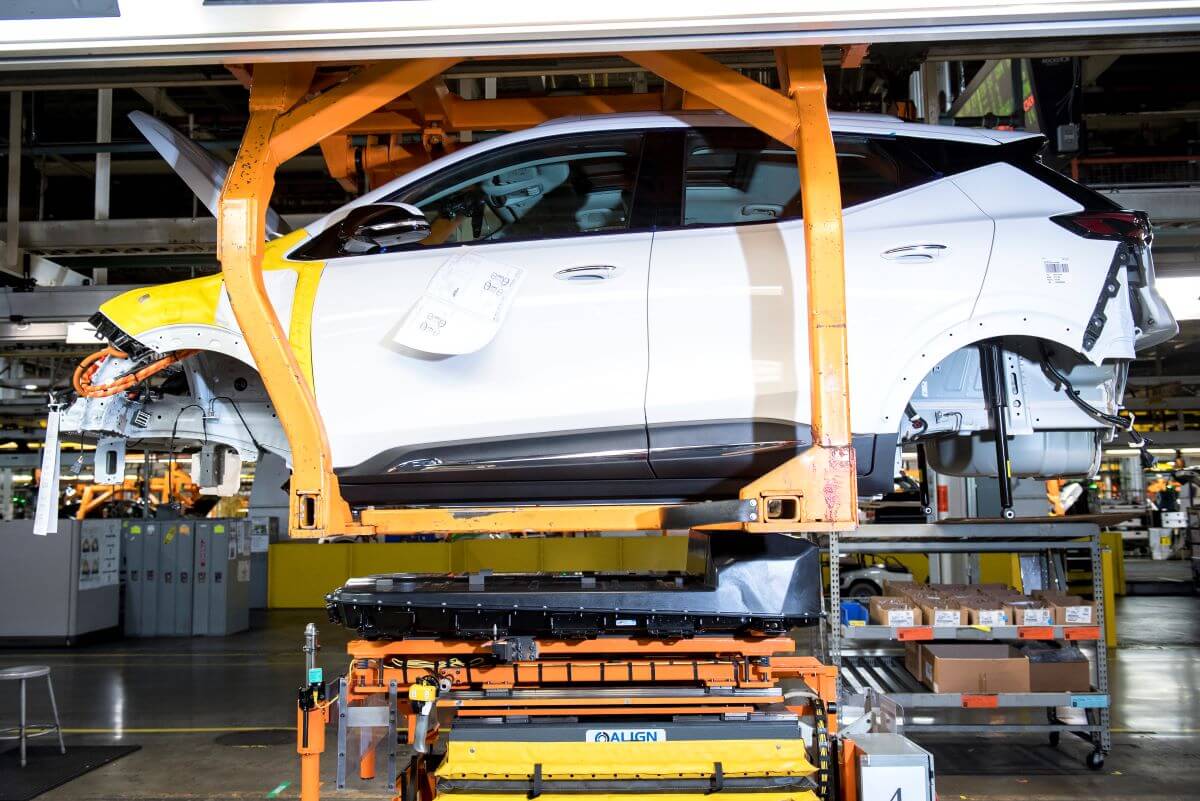Car Dealerships Intensify Opposition To Mandatory EV Sales

Table of Contents
Economic Concerns and the Impact on Dealerships
Mandatory EV sales quotas place significant financial burdens on car dealerships. The high upfront investment required for EV infrastructure is a major concern. This includes:
- Charging station installation: Dealerships must invest in costly charging infrastructure to accommodate the sale and servicing of EVs.
- Specialized tools and equipment: Maintaining and repairing EVs requires specialized tools and training, adding to initial and ongoing costs.
- Reduced profit margins: Currently, profit margins on EVs are often lower than on traditional combustion engine vehicles, impacting dealership profitability.
- Inventory risk: Dealerships face the risk of being saddled with unsold EV inventory, leading to significant financial losses.
- Workforce retraining: A shift towards EVs necessitates retraining existing staff and potentially hiring specialized technicians, adding to labor costs.
This financial strain could lead to significant job losses in the short term, as dealerships struggle to adapt to the rapid shift in market demands. The argument is that dealerships need a reasonable timeframe to adjust their business models and invest in the necessary infrastructure without facing immediate financial ruin. The long-term viability of many dealerships is directly tied to a realistic approach to EV adoption.
Consumer Demand and Market Readiness
A core argument against mandatory EV sales quotas centers on the current lack of sufficient consumer demand to justify such aggressive targets. Several factors contribute to consumer hesitancy:
- High purchase price: EVs remain significantly more expensive than comparable gasoline-powered vehicles for many consumers.
- Range anxiety: Concerns about limited driving range and the availability of charging stations continue to deter potential buyers.
- Inadequate charging infrastructure: A lack of widespread, reliable charging infrastructure, particularly outside major urban areas, is a significant barrier to EV adoption.
Mandating sales quotas before consumer demand is robust risks distorting the market, potentially leading to unsold inventory and further economic hardship for dealerships. A gradual market penetration, driven by increasing consumer interest and improved infrastructure, would be a more sustainable and less disruptive approach. Currently, the EV market share remains relatively small compared to traditional vehicles, highlighting the need for a more measured transition.
Challenges in the Supply Chain and Infrastructure
The current automotive supply chain is ill-equipped to handle a sudden surge in demand for EVs mandated by government quotas. Significant challenges include:
- Raw material scarcity: The production of EV batteries relies on scarce raw materials, creating bottlenecks and price volatility.
- Battery production limitations: Battery production capacity is currently insufficient to meet the demand implied by ambitious EV sales targets.
- Semiconductor chip shortages: The ongoing global chip shortage continues to impact the production of both EVs and traditional vehicles.
Furthermore, the lack of adequate charging infrastructure in many regions adds another layer of complexity. Significant investment in nationwide charging networks is essential before widespread EV adoption becomes feasible. These supply chain issues and infrastructure limitations make aggressive, mandatory EV quotas unrealistic and potentially counterproductive in the near term.
The Role of Government Incentives vs. Mandates
Instead of imposing potentially damaging mandates, governments should focus on incentivizing EV adoption through a variety of measures:
- Tax credits: Offering substantial tax credits for EV purchases can make them more affordable and attractive to consumers.
- Subsidies: Providing subsidies to manufacturers and dealerships can help offset the higher costs associated with EV production and sales.
- Investment in charging infrastructure: Government funding can play a critical role in expanding the nation's charging network.
These market-based solutions can stimulate consumer demand organically, creating a natural market pull for EVs without forcing dealerships into potentially unprofitable situations. This approach allows the market to adapt gradually, mitigating the risks associated with abrupt, mandated transitions.
The Future of EV Sales and the Dealerships' Role
In conclusion, the opposition to mandatory EV sales from car dealerships stems from legitimate economic concerns, market realities, and significant supply chain challenges. Simply mandating sales quotas without addressing these underlying issues risks damaging the automotive industry and hindering the transition to electric vehicles. A more balanced approach focusing on government incentives, investment in infrastructure, and a gradual market-based transition is necessary to foster sustainable and widespread EV adoption. We urge readers to learn more about the debate surrounding mandatory electric vehicle sales, participate in relevant discussions, and contact their representatives to voice their concerns about the potential negative impact of such mandates on the automotive industry and consumers. Let's work together to find solutions that promote both environmental sustainability and economic stability within the automotive sector.

Featured Posts
-
 The Ascent Of Manon Fiorot Her Progress Towards A Ufc Championship Match
May 12, 2025
The Ascent Of Manon Fiorot Her Progress Towards A Ufc Championship Match
May 12, 2025 -
 Figma Ceos Vision A New Era Of Ai Powered Design
May 12, 2025
Figma Ceos Vision A New Era Of Ai Powered Design
May 12, 2025 -
 Marvels Cancellation Of Henry Cavill Show A Potential Upside
May 12, 2025
Marvels Cancellation Of Henry Cavill Show A Potential Upside
May 12, 2025 -
 Tom Cruise A Complete Timeline Of His Relationships
May 12, 2025
Tom Cruise A Complete Timeline Of His Relationships
May 12, 2025 -
 Sissal Til Eurovision 2025 Danmarks Hab
May 12, 2025
Sissal Til Eurovision 2025 Danmarks Hab
May 12, 2025
Latest Posts
-
 Porsche Grand Prix Final Sabalenka To Face Ostapenko
May 13, 2025
Porsche Grand Prix Final Sabalenka To Face Ostapenko
May 13, 2025 -
 Stuttgart Open Ostapenko Upsets Swiatek Reaches Semifinals
May 13, 2025
Stuttgart Open Ostapenko Upsets Swiatek Reaches Semifinals
May 13, 2025 -
 Photo Controversy How Sabalenka Won In Stuttgart
May 13, 2025
Photo Controversy How Sabalenka Won In Stuttgart
May 13, 2025 -
 Top Seeded Sabalenka Advances To Porsche Grand Prix Final
May 13, 2025
Top Seeded Sabalenka Advances To Porsche Grand Prix Final
May 13, 2025 -
 Jelena Ostapenkos Triumphant Stuttgart Open Win
May 13, 2025
Jelena Ostapenkos Triumphant Stuttgart Open Win
May 13, 2025
